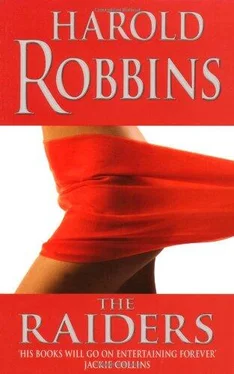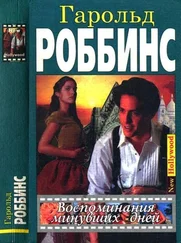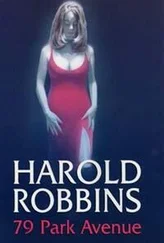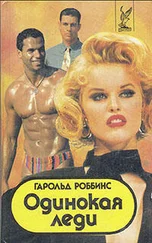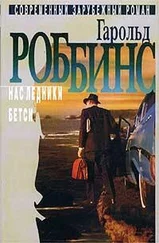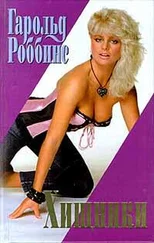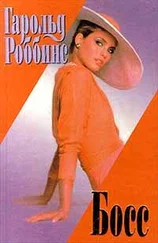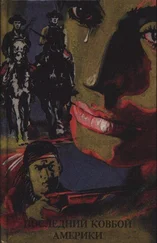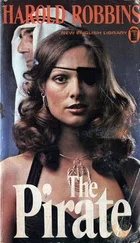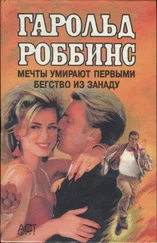Гарольд Роббинс - The Raiders
Здесь есть возможность читать онлайн «Гарольд Роббинс - The Raiders» весь текст электронной книги совершенно бесплатно (целиком полную версию без сокращений). В некоторых случаях можно слушать аудио, скачать через торрент в формате fb2 и присутствует краткое содержание. Жанр: Современная проза, на английском языке. Описание произведения, (предисловие) а так же отзывы посетителей доступны на портале библиотеки ЛибКат.
- Название:The Raiders
- Автор:
- Жанр:
- Год:неизвестен
- ISBN:нет данных
- Рейтинг книги:3 / 5. Голосов: 1
-
Избранное:Добавить в избранное
- Отзывы:
-
Ваша оценка:
- 60
- 1
- 2
- 3
- 4
- 5
The Raiders: краткое содержание, описание и аннотация
Предлагаем к чтению аннотацию, описание, краткое содержание или предисловие (зависит от того, что написал сам автор книги «The Raiders»). Если вы не нашли необходимую информацию о книге — напишите в комментариях, мы постараемся отыскать её.
The Raiders — читать онлайн бесплатно полную книгу (весь текст) целиком
Ниже представлен текст книги, разбитый по страницам. Система сохранения места последней прочитанной страницы, позволяет с удобством читать онлайн бесплатно книгу «The Raiders», без необходимости каждый раз заново искать на чём Вы остановились. Поставьте закладку, и сможете в любой момент перейти на страницу, на которой закончили чтение.
Интервал:
Закладка:
In this little friction over what she would wear in her dancing classes, Golda for the first time felt a tinge of resentment about separateness. She was the only girl in her classes asked by her family not to wear what the others wore; and if she had done it, it would have embarrassed her, not to say humiliated her. She didn't want to be different. She didn't want to be identified as someone unusual, peculiar.
She wondered then why her father dressed eccentrically, why she was supposed to keep her head covered outside the house, why they were obsessed about keeping the meat and milk apart, why their family and nearby friendly families were so different from all the other people she saw as she rode the bus to her dancing classes. She ventured to ask her mother, not her father, and was told that they obeyed the law and followed tradition, which was what G-d wanted them to do.
G-d wants us to do, G-d tells us to do. (They never broke the law that forbade them spelling out the name of the Deity, and in Golda's mind, God was G-d.) What G-d wanted seemed to justify everything.
She rode to and from her dancing classes with a girl who said she believed in God but believed very differently.
"Why is it," she asked this girl on the bus one day, "that God tells you to do one thing and tells us to do something else?"
The girl shrugged. " 'The Lord moves in mysterious ways His wonders to perform,'" she said. "We are God's children. Blessed be the name of the Lord."
By the time she was fourteen, Golda Graustein was very secretly, but very definitely, a skeptic.
3
When she was fifteen she was introduced to the young man Rabbi Graustein had tentatively decided would be her husband. His name was Nathan. He was a student at the yeshiva, preparing himself for the rabbinate. He was eighteen years old.
Nathan was a slight young man, timid in the presence of the lordly Rabbi Mordecai Graustein, and respectful toward the rabbi's daughter. He was only an inch or so taller than Golda and probably weighed less than twenty pounds more. She disliked the redness of his full lips. She disliked the straggly patches of whiskers that grew here and there on his cheeks and jaw — which he might have shaved, she thought, until he could grow a manly beard. She disliked his totally practical little round silver-rimmed eyeglasses. He wore a calf-length black coat, wore his white shirt buttoned up and without a necktie, and wore his black hat set precisely square on his head — all like her father, only on Nathan these things did not lend dignity. Above all, she disliked his bland sincerity.
He had been in their house four times before he spoke a word to her. Then he said, quietly, bluntly, "Our fathers have chosen us for each other."
"Perhaps," she said noncommittally. "But that's a long time from now."
"Yes," he said. "I must continue to study."
Neither of her parents saw her first dance recital. For six months she had been working with Mrs. Shapiro, her dance teacher, to develop a routine. Her mother didn't know and probably would not have told Rabbi Graustein if she had.
The recital was given in the recreation hall of a temple in Hempstead, Long Island. When Golda mentioned that it was being presented in a Jewish temple, her father frowned but did not ask what kind of house G-d had that included a recreation hall. To the Graustein family, Hempstead sounded like a distant place, certainly one they could not reach conveniently, and they accepted the assurance that the young dance students would be transported there on a bus and returned by nine o'clock in the evening. In fact, that was the only negative reaction they had to the recital — that the bus had returned at 9:46.
They did not see their daughter perform. She was sixteen. She had ripened into a leggy, busty young woman. Some of the dancers in the recital were tap dancers, some essayed ballet. Golda Graustein came on the stage in bright-red hip-high leotards glittering with spangles, wearing a red spangled top hat and net stockings, and carrying a stick. She did a solo piece. She danced, and she sang, and twice she dropped in a one-liner — her own, not authorized by Mrs. Shapiro. She mugged. She rolled her eyes. Her enthusiasm was infectious. The audience stood to applaud and called her back three times.
"I will be a dancer. I will be an entertainer," she told her mother in the quiet of her bedroom that night.
"Your father has chosen a husband for you."
Golda's answer was simple. "No."
It was the first time he called her a shiksa.
He would no longer pay Mrs. Shapiro to teach her. Mrs. Shapiro taught her anyway. He wouldn't give her bus fare to go to her classes. She walked, until Mrs. Shapiro found out and gave her bus fare.
Naomi Shapiro had danced on Broadway in the 1920s and early '30s, without much success; and when her figure began to thicken they had discontinued hiring her.
"They will break your heart, darling," she told Golda. "You must think. You must think — "
Golda was eighteen. "I must think of the alternative," she said. "Marriage to a pale, pimply ... unmanly — "
"I can arrange an audition. You see what you will have to compete with, then you will know."
4
Before this audition, Golda lost her virginity. More accurately said, she did not lose it; she got rid of it, something she had ceased to prize. She gave it away in a darkened rehearsal room at Mrs. Shapiro's studio, to a dancer two years older than she was: a muscular, handsome, manly youth, everything Nathan was not.
Doing this, she made her first great mistake about love. Innocent, she did not understand that a man could do to her what that young dancer did — unless he loved her. Oh, maybe not loved her in the great romantic way they heard sung about on records and radio, but cared for her at least. How could he have struggled with her through the ritual of passion without caring for her?
But he had. He was a nice Jewish boy, too. He thrust his big fat organ into her and caused her pain and pleasure and afterward treated her as a nuisance he didn't want to tolerate anymore.
A week later Mrs. Shapiro accompanied her to her first audition. It was, of course, a revelation. Golda discovered that she was only one of thousands — tens of thousands? — of girls who were dedicated to dancing and yearned for a place in the chorus lines of Broadway shows. She was seen at all only because someone felt he owed a favor to Naomi Shapiro.
She did not make the first cut.
As they stood on the street outside the theater in the rain looking for a cab to take them to the subway station — Golda depressed, wearing a scarf over her head, a too-short raincoat, saddle oxfords, and bobby sox, everything unstylish — a man walked up to them.
"Hi, Naomi," he said. "Disappointed?"
"I'm not," said Mrs. Shapiro. "I warned her. I suppose Golda is. Golda Graustein, meet Ernie Levin."
Golda looked at this man. He was maybe fifty years old. He wore a pork-pie rain hat and a black raincoat. He was not as tall as she was. His face looked squashed down, as if the jaws of a vise had been tightened on his skull and jaw, but an irrepressible smile shaped his eyes and mouth.
"Nice to meet ya, Miss Graustein. The first thing to do is change that name. The next thing — What are you, Hassidic? The next thing is to toss away the scarf, get your eyebrows plucked, get your hair cut, and learn to wear makeup."
"Ernie is an agent," said Mrs. Shapiro without enthusiasm.
"I was back there," said Ernie Levin. "I saw the audition. I can get ya work, kid. I can place her in the Catskills this summer, Naomi. Next fall, off Broad-way maybe. Forget the chorus line, Golda. You got a shtick. That's why you'll never make it in the chorus line. You'd pull too much attention. What they want is uniformity. It's grunt work anyway. How old are ya?"
Читать дальшеИнтервал:
Закладка:
Похожие книги на «The Raiders»
Представляем Вашему вниманию похожие книги на «The Raiders» списком для выбора. Мы отобрали схожую по названию и смыслу литературу в надежде предоставить читателям больше вариантов отыскать новые, интересные, ещё непрочитанные произведения.
Обсуждение, отзывы о книге «The Raiders» и просто собственные мнения читателей. Оставьте ваши комментарии, напишите, что Вы думаете о произведении, его смысле или главных героях. Укажите что конкретно понравилось, а что нет, и почему Вы так считаете.
